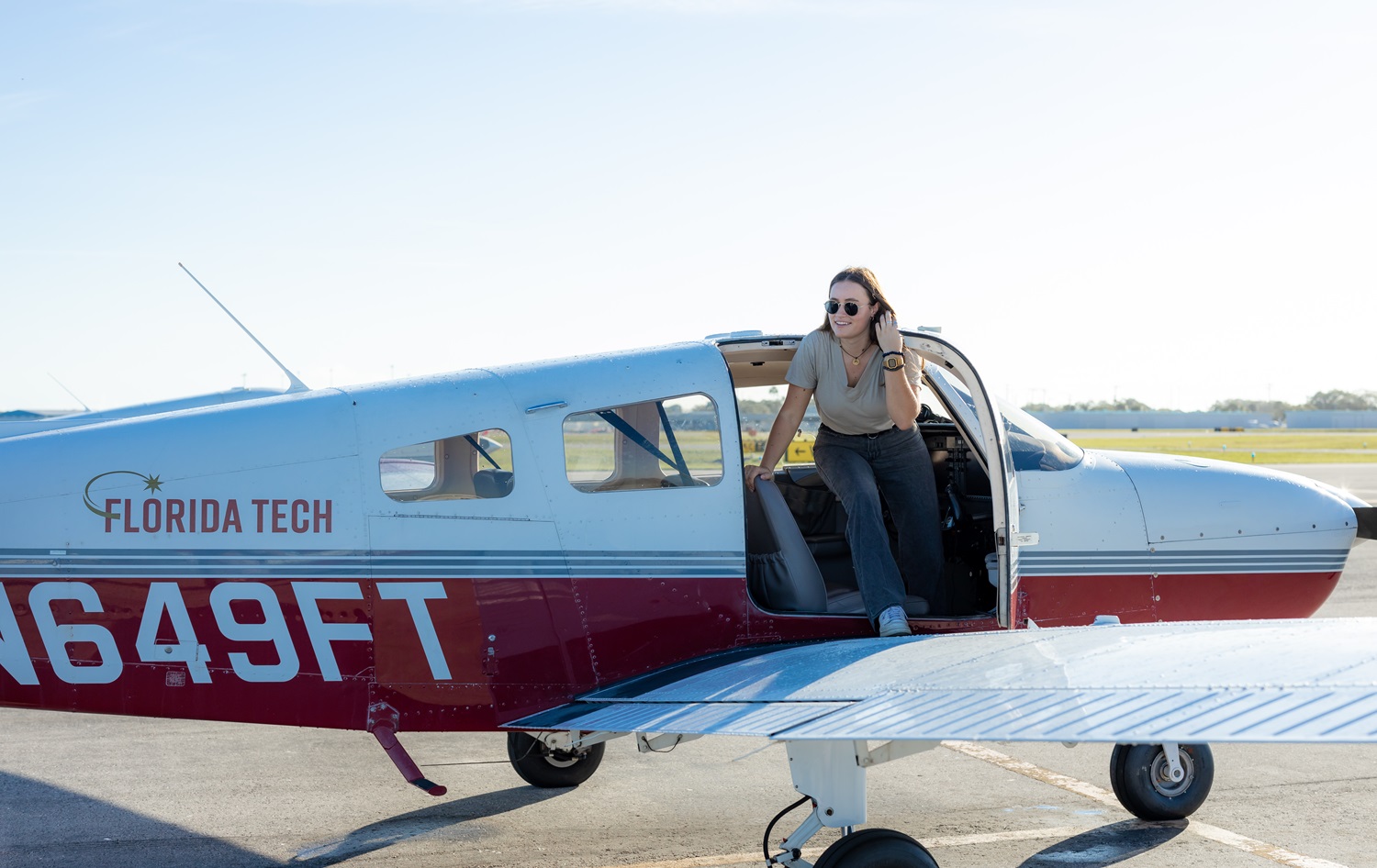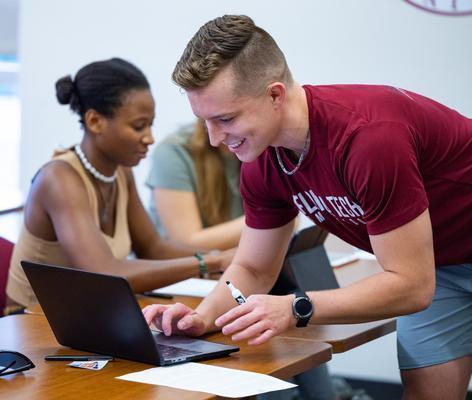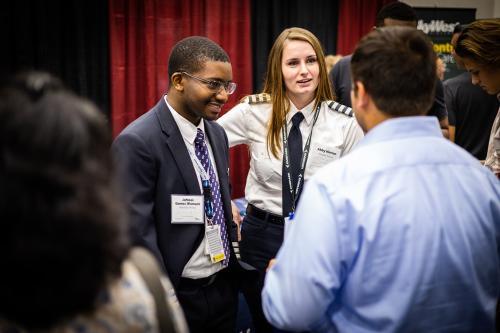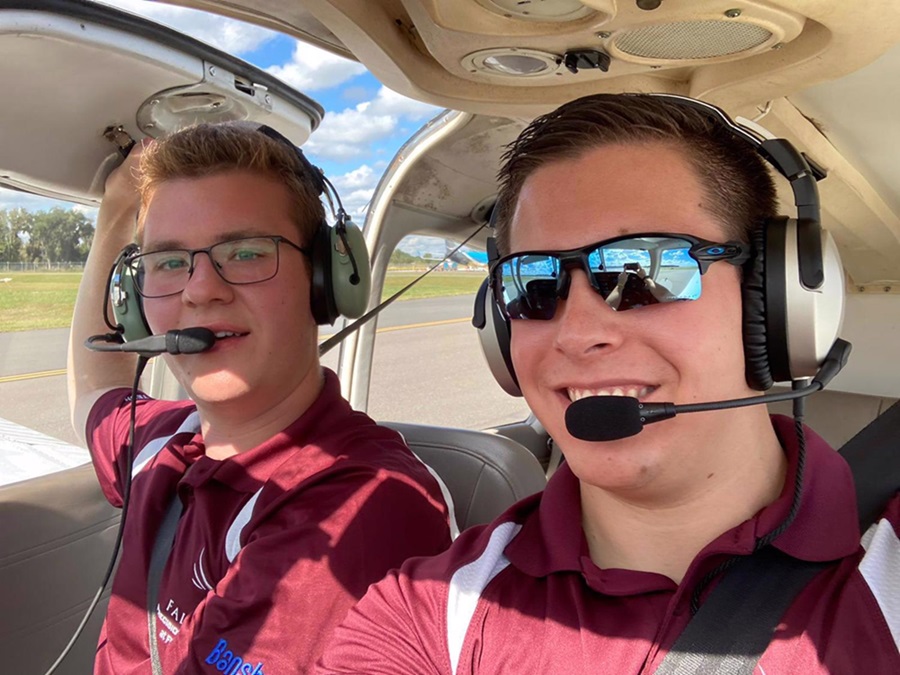Student Groups to Jumpstart Your Journey
Aeronautical science majors gain leadership and professional experience through participation in academic organizations and honor societies, student government and student organizations, including:
- Collegiate Aviation Business Executives (CABE)
- Women in Aviation
- International Society of Air Safety Investigators (ISASI)
- Alpha Eta Rho (AHP), a professional collegiate aviation co-ed fraternity
Check out other networking opportunities in groups such as the Florida Tech Flight Team, the Drone Club and 200+ other campus student organizations.


 Give to Florida Tech
Give to Florida Tech 



